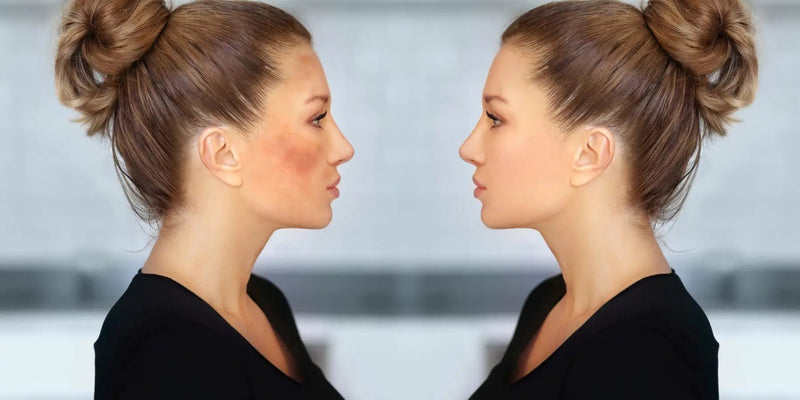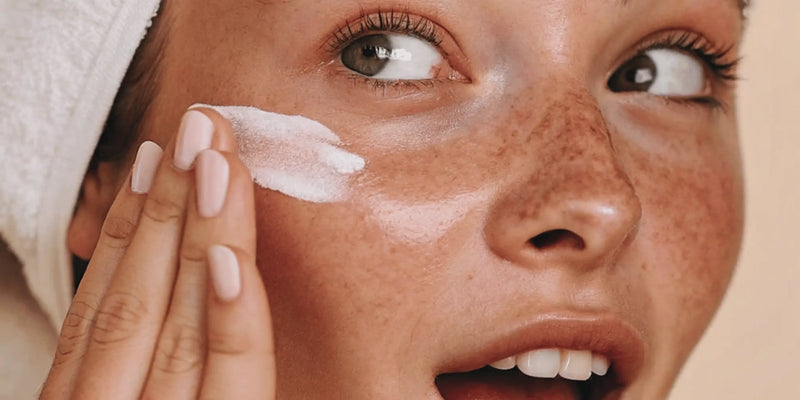Is This the Ultimate Solution? The Best Anti-Wrinkle Cream for Men Revealed
As men age, one of the first signs that become noticeable is the development of fine lines and wrinkles. These changes, often seen around the eyes, forehead, and mouth, can affect not only how others perceive us but also how we feel about our own appearance. The good news is that there are effective solutions for tackling these early signs of ageing, and one of the best ways to fight wrinkles is through the use of a high-quality anti-wrinkle cream. But with so many products on the market, how do you know which is the best anti-wrinkle cream for men? In this article, we’ll uncover the ultimate solution to smooth, youthful skin by revealing the best options available and how they can work wonders for your complexion.
The best anti-wrinkle cream for men should do more than just mask wrinkles temporarily. It needs to have powerful ingredients that not only target existing lines but also prevent new ones from forming. Key ingredients to look for include retinol, hyaluronic acid, peptides, and antioxidants. Retinol, a form of Vitamin A, is one of the most effective ingredients in anti-ageing products. It works by increasing cell turnover, which helps to shed dead skin cells and reveal smoother, fresher skin underneath. It also stimulates collagen production, which is vital for skin elasticity and firmness. A good anti-wrinkle cream for men should incorporate retinol at a suitable concentration to smooth wrinkles without irritating the skin.
Another critical ingredient is hyaluronic acid. This powerhouse hydrator draws moisture into the skin and helps maintain that hydration, making your skin appear plumper and smoother. Wrinkles tend to be more noticeable on dry skin, so maintaining proper moisture balance is key. Hyaluronic acid fills in those fine lines, providing instant relief. Additionally, peptides are essential in the best anti-wrinkle creams for men. These amino acids help rebuild the skin’s structure, improving elasticity and overall firmness. With consistent use, these ingredients can work together to reduce the depth of wrinkles and give your skin a youthful appearance.
How to Choose the Best Anti-Wrinkle Cream for Men
Choosing the best anti-wrinkle cream for men requires understanding your skin’s specific needs. Men’s skin tends to be thicker and more oily than women’s, so it’s important to choose a product that works well with these characteristics. For oily skin types, opt for a lightweight, non-comedogenic cream that hydrates without clogging pores. Gel-based formulas are an excellent choice for men with oily skin, as they absorb quickly and don’t leave a greasy residue. These formulas still provide all the benefits of anti-wrinkle ingredients like retinol and hyaluronic acid without feeling heavy on the skin.
If your skin is on the drier side, look for richer, cream-based anti-wrinkle treatments. These moisturising formulas often contain nourishing ingredients like shea butter or ceramides, which help to lock in moisture while working to reduce wrinkles. For those with sensitive skin, finding a product that’s both gentle and effective is crucial. Look for creams that are fragrance-free and free of harsh chemicals, as these can irritate sensitive skin. Opt for creams with soothing ingredients like aloe vera, chamomile, or calendula, which can calm the skin while reducing the appearance of wrinkles.
When shopping for the best anti-wrinkle cream for men, also consider the texture and absorption rate. The last thing you want is a cream that takes too long to sink into your skin, leaving you feeling sticky or greasy. A good anti-wrinkle cream should be easy to apply and absorb quickly. It should work seamlessly with your other skincare products and provide a smooth base for makeup or sunscreen if needed. Furthermore, many of the best anti-wrinkle creams for men come in sleek, masculine packaging, which makes it easier to incorporate into your daily routine without feeling like you’re using a product designed for women.
What to Expect from the Best Anti-Wrinkle Cream for Men
The best anti-wrinkle cream for men should deliver both immediate and long-term results. When you first apply the cream, you may notice an instant smoothing effect, especially if it contains ingredients like hyaluronic acid. This provides an immediate plumping effect that can make fine lines appear less noticeable. Over time, consistent use of an anti-wrinkle cream will lead to more noticeable improvements. As the retinol and peptides begin to work, your skin will become firmer, and the deeper wrinkles will appear reduced. You should also notice a brighter, more even skin tone, as many anti-wrinkle creams for men also contain ingredients that target pigmentation and sun damage.
It’s important to manage your expectations, however. While an anti-wrinkle cream can certainly help reduce the appearance of wrinkles, it’s not a miracle product. You’ll need to use it consistently over several weeks or even months to see the full benefits. In addition, remember that the best anti-wrinkle creams work best when paired with a good skincare routine. This includes cleansing, exfoliating, and moisturising regularly, as well as using sunscreen during the day to protect your skin from further damage. A holistic approach to skincare will complement the effects of the cream, giving you smoother, firmer, and more youthful-looking skin in the long run.
Maximising Results with a Complete Skincare Routine
To get the most out of your best anti-wrinkle cream for men, it’s essential to integrate it into a complete skincare routine. Cleansing your skin regularly will help remove dirt, oil, and impurities, allowing the active ingredients in your anti-wrinkle cream to penetrate deeper and work more effectively. Exfoliating once or twice a week will remove dead skin cells and help reveal fresh, youthful skin beneath. This can enhance the benefits of your anti-wrinkle cream by ensuring that the active ingredients are able to reach the deeper layers of your skin.
After cleansing and exfoliating, apply your best anti-wrinkle cream for men to a clean face. Gently massage the cream in upward circular motions to stimulate blood circulation and ensure even application. Don’t forget to apply your cream to your neck and décolletage as well—these areas are often neglected but can show signs of ageing just like the face. In the morning, follow up with a good sunscreen to protect your skin from harmful UV rays, which can cause premature ageing and deepen existing wrinkles. At night, apply the cream again to help your skin repair itself while you sleep.
The Ultimate Anti-Wrinkle Solution for Men
If you're looking to reduce fine lines and wrinkles, using the best anti-wrinkle cream for men is an effective and convenient solution. By choosing a product that contains powerful ingredients like retinol, hyaluronic acid, peptides, and antioxidants, you can target both the visible and underlying causes of wrinkles. Whether you have oily, dry, or sensitive skin, there’s an anti-wrinkle cream designed to suit your needs. For optimal results, be sure to combine the use of your cream with a healthy skincare routine, including cleansing, exfoliating, and sun protection. With consistent use, the best anti-wrinkle cream for men can help you achieve smoother, firmer, and more youthful-looking skin.
Shop Anti-Ageing Collection











